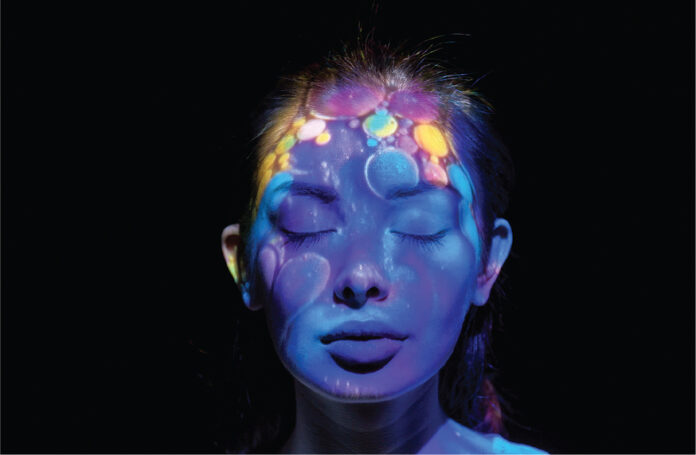Dreams have fascinated human beings for centuries. From vivid landscapes to bizarre scenarios, dreams are a gateway to our innermost thoughts and emotions. Ancient civilizations believed dreams held prophetic significance, while modern science seeks to unravel their mysterious nature. In this article, we delve into the science of dreams and explore the meaning behind these enigmatic sleep fantasies.
What Are Dreams?
Dreams are a series of images, emotions, and sensations that occur during sleep. They typically happen during the rapid eye movement (REM) stage, which is characterized by heightened brain activity. Dreams can be fleeting or linger in our memory upon awakening. They encompass a wide range of experiences, from mundane occurrences to fantastical adventures.
Theories about the Function of Dreams
Throughout history, numerous theories have emerged to explain the purpose of dreams. Here are some of the most prominent ones:
Psychoanalytic Theory: Sigmund Freud, the father of psychoanalysis, proposed that dreams serve as a window into the unconscious mind. According to Freud, dreams contain hidden desires, repressed thoughts, and unresolved conflicts. He believed that by analyzing dreams, one could gain insight into their innermost desires and fears.
Information Processing Theory: This theory suggests that dreams play a crucial role in processing and consolidating information from daily experiences. During sleep, the brain organizes memories, solves problems, and integrates new knowledge into existing frameworks. Dreams may act as a mechanism for filtering and storing relevant information while discarding irrelevant data.
Activation-Synthesis Theory: Proposed by researchers J. Allan Hobson and Robert McCarley, this theory suggests that dreams are a result of random brain activity during sleep. According to this view, the brain’s cortex tries to make sense of the nonsensical signals generated by the brainstem, leading to the creation of dream narratives.

The Meaning of Dreams
Deciphering the meaning of dreams is a complex task due to their highly subjective nature. Nevertheless, researchers have made significant progress in understanding common themes and symbols that appear in dreams. Here are some interpretations associated with frequent dream elements:
Flying: Dreaming of flying often represents a sense of freedom, liberation, or empowerment. It can symbolize escaping limitations or gaining a new perspective on life.
Falling: Falling dreams are often associated with a loss of control or a fear of failure. They may indicate anxiety or a need for support in waking life.

Being Chased: Being chased in a dream can symbolize avoidance or running away from an issue or responsibility. It may reflect feelings of being overwhelmed or pursued by something in waking life.
Teeth Falling Out: Dreams about teeth falling out can signify anxiety about one’s appearance, communication difficulties, or concerns about aging and mortality.
Being Naked in Public: This dream scenario often represents vulnerability or a fear of being exposed. It may indicate feelings of insecurity or a desire for acceptance.
It’s important to note that dream symbolism can vary among individuals, and personal experiences and cultural backgrounds can influence interpretations. The meaning of dreams is subjective, and understanding their significance often requires introspection and reflection.
Interpreting Dreams: Techniques and Tools
Numerous techniques and tools have been developed to aid in the interpretation of dreams. Here are a few commonly used approaches:
Dream Journals: Keeping a dream journal involves recording dreams immediately upon waking. This practice can help identify recurring patterns, emotions, and symbols, providing insight into personal dream symbolism.
Jungian Analysis: Carl Jung, a renowned psychologist, developed a theory of dream analysis that emphasizes archetypes and the collective unconscious. Jung believed that dreams reflect universal symbols and themes shared by humanity.

Cognitive Approaches: Cognitive psychologists study how dreams relate to waking thoughts and emotions. They analyze the underlying cognitive processes involved in dream construction and explore how dream content may reflect one’s waking concerns.
Lucid Dreaming: Lucid dreaming occurs when an individual becomes aware that they are dreaming while still in the dream state. This awareness allows dreamers to exert some control over the dream narrative and explore its meaning in real-time.
The Benefits of Dream Analysis
Exploring the meaning of dreams can offer several benefits:
Self-Reflection: Dream analysis provides an opportunity for self-reflection and self-discovery. It can uncover hidden emotions, fears, and desires that may be influencing our waking lives.
Emotional Processing: Dreams often serve as a means of emotional processing, allowing us to work through unresolved feelings or experiences. By examining our dreams, we can gain a better understanding of our emotional state and potentially find ways to address any underlying issues.
Problem Solving: Dreams can provide valuable insights and solutions to real-life problems. Through dream analysis, individuals may discover creative approaches to challenges they face in their waking lives.
Personal Growth: By exploring our dreams, we can gain a deeper understanding of ourselves and our personal growth. Dreams can reveal our aspirations, strengths, and areas for improvement, aiding in the journey of self-development.
In conclusion, the science of dreams continues to intrigue and captivate us. While the true nature and purpose of dreams remain elusive, research has shed light on their potential meanings and functions. Through various techniques and tools, we can delve into the rich tapestry of our dream worlds, unlocking the insights they hold and uncovering the mysteries of our subconscious minds. So tonight, as you close your eyes and drift into slumber, remember that your dreams may hold the keys to understanding yourself and the world around you. Sweet dreams!

